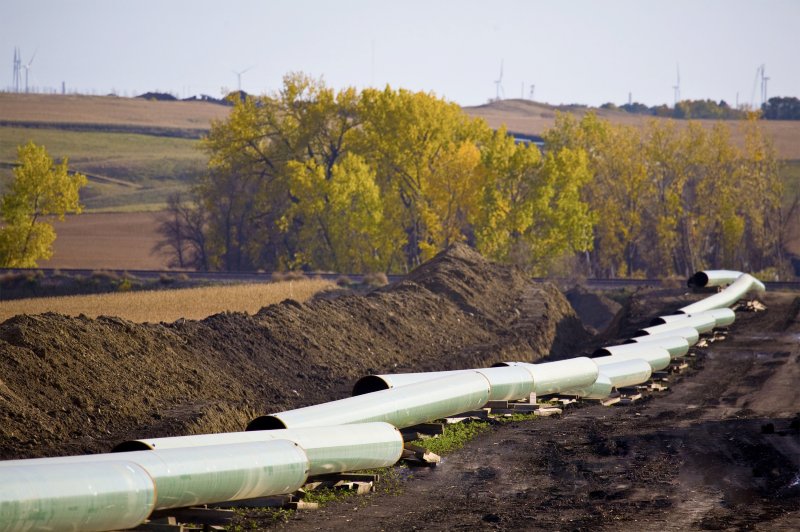An expected increase in Canadian crude oil production may be constricted by the lack of new pipeline infrastructure, federal report finds. Photo courtesy TransCanada
CALGARY, Alberta, Jan. 28 (UPI) -- Canadian oil production is on pace to increase substantially, though momentum may be throttled without new pipelines, federal analysis finds.
The federal National Energy Board issued an annual report on the prospects for the Canadian energy sector in an era when lower crude oil prices are restricting vitality.
"To use 'uncertain' to characterize the past 18 months in Canadian energy would be an understatement," NEB Chairman C. Peter Watson said in a statement. "I doubt there is a single market observer who could have foreseen the dramatic fall in the global price of crude oil, one of Canada's largest exports."
Crude oil prices are down about 70 percent from mid-2014 and off about 7 percent for the year. Prices are lower in part because robust production in the United States is pushing the market toward the supply slide. Higher U.S. production, meanwhile, means Canada's main export partner is less dependent on foreign reserves.
For the week ending Jan. 22, federal U.S. data show imports of Canadian crude oil down about 4.5 percent from the previous week.
Despite the market decline, the NEB found Canadian oil production will remain resilient and increase by as much as 56 percent from 2014 levels by 2040.
"Without development of additional oil pipeline infrastructure, crude oil production grows less quickly but continues to grow at a moderate pace over the projection period," the report found.
Canadian pipeline company TransCanada is suing the federal U.S. government over the denial of a permit to build the Keystone XL pipeline across the U.S.-Canadian border. Canadian Prime Minister Justin Trudeau, meanwhile, has expressed reservations about adding pipeline infrastructure in national territory.
Kinder Morgan was the latest to face a setback with the provincial government of British Columbia raised questions about plans to expand the existing Trans Mountain pipeline network to triple its capacity to around 890,000 barrels of oil per day.
The NEB found crude oil production increases still and remains profitable, though without new pipelines, "the increased use of rail, a more expensive shipping mode, leads to lower prices received by Canadian producers."















